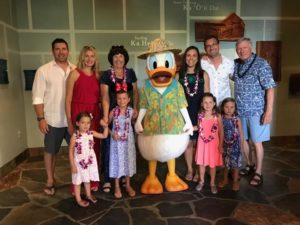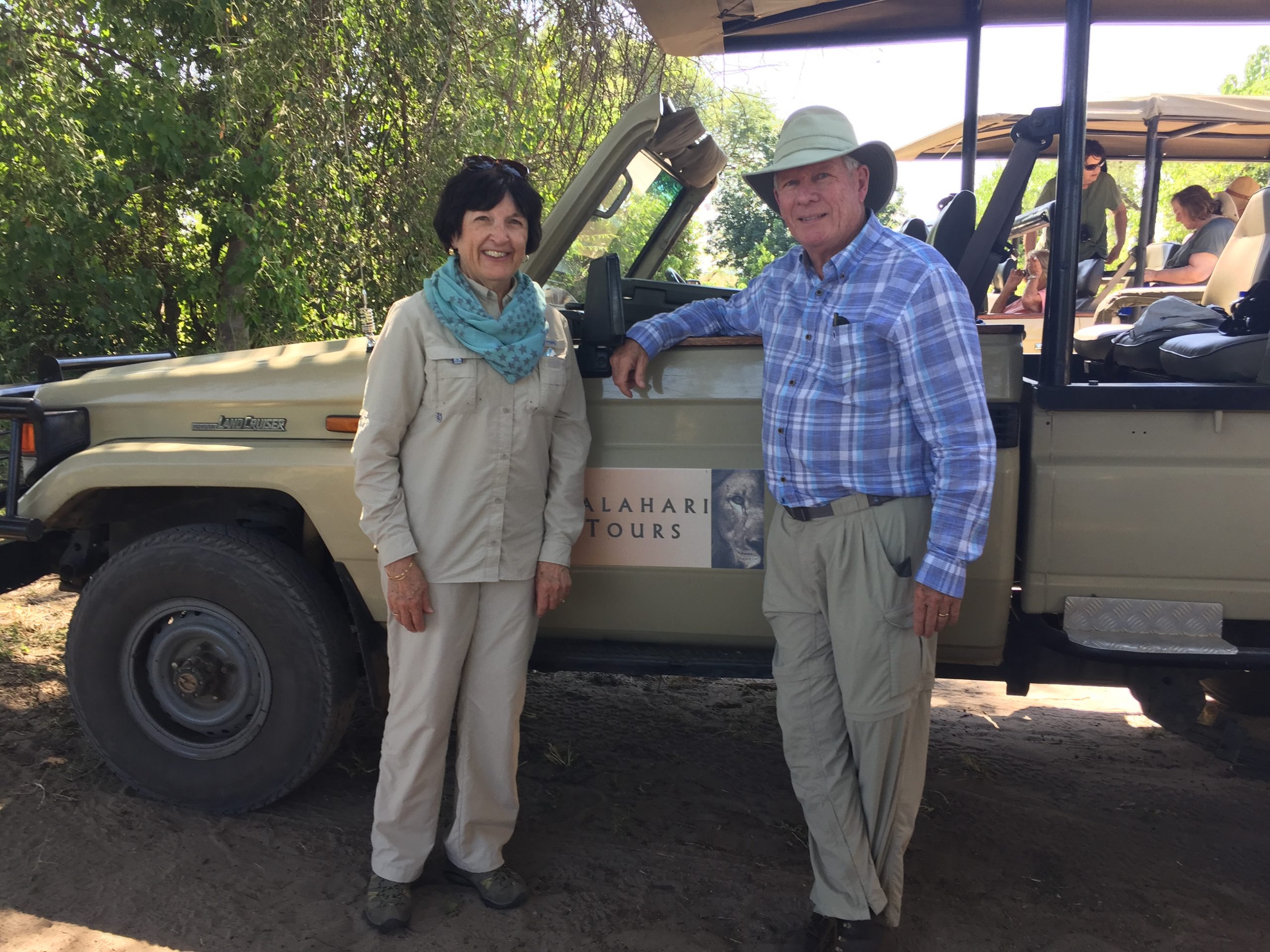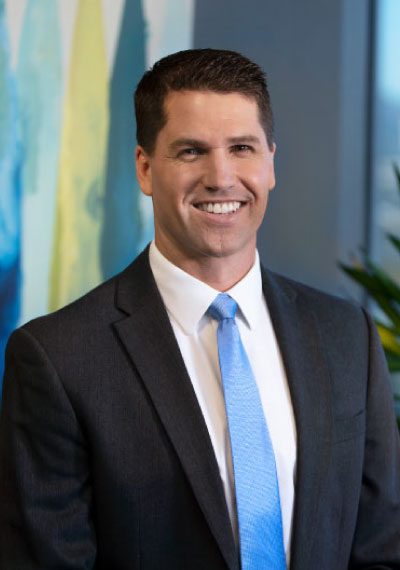The following is an interview with Peg and Bob Eddy. We asked them to share some of their perspectives regarding their retirement on May 1, 2017, after owning CCMI for forty-two years:
What did you think “retirement” would be like?
Bob– I envisioned it as having time to do things I couldn’t do when I was working. I was hoping it would be at a more relaxed pace, with time to pursue hobbies, explore new activities and read books I have wanted to read.
Peg– I was hoping my retirement would have a relatively open calendar where I could schedule myself for volunteering when I wanted to and not for a set day and time. I also hoped we would travel more. I envisioned finally getting back to creative writing. I was hoping I could learn to just sit and read without feeling guilty (I’m still working on that one!). I was looking forward to not having to read professional journals almost every night and that we could entertain or go out on evenings during the week, versus just on weekends.
What did you do to prepare for retirement?
Bob– We always knew when we would retire, so it was date-specific for our preparation and planning purposes. I’ve always had a musical interest in piano. When I was about 64, as I had a guitar, I thought I would take guitar lessons to see if I had the self-discipline to spend the time practicing. If so, I could count on taking piano lessons in retirement. I also started playing golf when I was 60 to see if it was a hobby I would enjoy when I retired at 70. While I was still working, on weekends I took lessons to improve my game. That didn’t always work well, but I am persistent and stayed with it. A year before retirement, I created my own retirement calendar, listing what I would do daily and how I would spend my time in retirement. There are still activities on my calendar that I haven’t started, e.g. take a philosophy class, improve chess game, etc. Watching other clients move into their retirement, I knew I had to retire TO something versus retiring to unknown empty days. Friends that retired without having something to go toward spent too much time watching TV. In one case, one man at age 75 went back to work because he feared he was becoming an alcoholic. In our last two years at CCMI, I took off 60 to 70 days a year to travel, play golf or visit the grandchildren. We had heard that tapering off before retirement was helpful.
Peg-About three years prior to retiring, I blocked out my Fridays as a “free day” to stay home and do what I wanted. Unfortunately, many times I wasn’t disciplined enough to not respond to client emails or return client calls. Many times, I found myself using my quiet time at home to write the CCMI newsletter. By taking off one day a week, it was my attempt to ease into retirement without going “cold turkey” and I was somewhat successful. I also researched classes and started a list of things I wanted to do and classes I wanted to take. As we knew we would downsize soon after selling the practice, I spent a lot of time clearing out closets and file drawers preparing for moving to a smaller home, which we did in 2018.
What do you miss about working, if anything?
Bob– I miss working with younger people and the team at CCMI and teaching them what I knew about the financial services industry. I also miss helping people solve their financial challenges although sometimes it took 20 to 30 years to see if their plans worked out. Lastly, I miss the intellectual challenge of developing solutions for clients. However, for me, it was more important to be relaxed than to continue with the intellectual challenge of work.
Peg– Well, I don’t miss being Chief Compliance Officer. I miss the clients and knowing how they are doing in their personal lives. I also miss the CCMI team; however, as they are managing our funds, we stay in contact periodically. I also miss preparing for and giving presentations, as odd as that sounds. I enjoyed public speaking and sharing information with an audience.
You officially retired on May 1, 2017. What does your week look like now?
Bob– My week is somewhat structured. (This should not be a surprise to those who know me well.) Daily, I spend two hours practicing on the piano and guitar, to keep my mind sharp. On Wednesdays, I have my formal music lessons for guitar and piano and work errands in around those lessons. I try to golf with friends once a week and work out three days a week at the gym. I try to go sailing once a month with Peg. (We rent sail boats in Coronado, so we don’t have to take care of one more possession!)
Now that I’m retired, we attend more plays in the evenings and see friends during the week. We also travel quite a bit and I am getting around to reading books I’ve had on my list for years.
Peg– I focus on volunteer opportunities that don’t require me to be there at a set day and time each week. Thus, I volunteer with the San Diego Zoo information ambassador program and the Coronado Tourist Information Center. (Both of these organizations allow volunteers to self-schedule when it’s convenient.) I continue with my involvement with San Diego Rotary Club 33, but as a “Senior Active” there is no weekly mandated attendance.
These volunteer activities suit my retirement lifestyle, as we travel quite a bit, both domestically– primarily to the Bay area to visit our two sons and their families– and internationally. (This past April, Bob and I travelled to Africa.) I am taking creative writing classes through Oasis (a great resource for retired individuals). I also take flower arranging classes through Coronado Recreation Department. I stay in closer communication with family members. Finally, I try to walk frequently and swim laps in a lap pool three times a week (when I am disciplined enough to just do it!).
What advice do you have for folks planning to retire in the next three years?

The Eddy family at Disney’s Aulani Resort. Back Row L-R: Ryan, Jessica, Peg, Donald Duck, Alison, Sean, and Bob. Front Row L-R: Julia (3), Lucy (7), Madison (4), and Margot(4).
Bob–Before we retired, we made up a “fun jar” into which we put small notes listing different outings, for example, visit a specific museum in Balboa Park, hike in Julian, walk around Little Italy, etc. It forced us to do some fun things during weekends, so we didn’t just garden, clean house and stay home every weekend. Now in retirement, we still have that fun jar and take adventures during the week.
It’s important for folks to know in general what they’ll do in retirement and how they will spend their time. In retirement you are what I call “time affluent”, which means you have the time to do whatever you want! Instead of your week being scheduled by your workplace, you must create and schedule different things to do.
Also, it’s helpful to remember that retirement is a transition and that becoming comfortable with free time is a gradual adjustment. If you plan for it in advance, it’s easier to retire and relax.
Peg– If you are relocating when you retire, check out a community well in advance. Envision what your retirement will look like. If you aren’t volunteering during your work life, prior to retiring, try one or two volunteer activities to see if you are drawn to the organization’s mission.
Talk with your spouse, significant other, and family members about your retirement plans; surprises are great but being home for lunch every day is not one of them!
Stay on track with your financial plan and update it frequently. Becoming financially independent doesn’t happen three years prior to retirement; it is a lifelong commitment to saving, investing and planning. We are proof that planning does pay off; balancing longer term planning with enjoying the present moment is challenging, but it can be done with a bit of work, self-discipline and the right professional assistance.
Try gradually easing out of your profession or job, if possible. Attempt to delegate more projects to junior members on your team, so you become comfortable knowing your clients will be well cared for when you leave. Start an exercise program so it’s easier to continue when you retire. Finally, practice an attitude of gratitude. As we age, things change, but being grateful for small things makes life more enjoyable. Staying engaged and not becoming isolated is also important.
What were you worried about before you retired?
Bob—I was concerned that days would be long, because I didn’t have enough to do. Therefore, I planned and tried different things before I retired to see if I liked them.
Peg- Seeing Bob less than I did when we worked together for 42 years; he was much more organized about retirement activities than I was prior to retirement; perhaps that forced me to feel comfortable to pursue things I put off for so many years, due to the demands of the business.
What do you worry about now?
Bob– I’m not sure “worry” is the right word. Although I am in good health, I am concerned about making my passing as easy as possible on the family– especially our children– so that everything is well organized and laid out, e.g. passwords, accounts identified so it takes minimum effort to settle the estate as it did when my parents passed away.
If Peg were to predecease me, my plan is to move into a congregate care community sooner than when Peg and I would move into a retirement community. By doing so there would be social interaction. (Peg adds, “And the conga line of casserole-bearing widows beating a path to your door!”)
Peg– Those who know me well may be surprised to learn that I don’t worry as much about things as I used to when I was working. We don’t worry about our investments, as CCMI manages them for us, so market fluctuations aren’t a concern.
My main worry is having a worthwhile purpose during this last chapter of my life. Time is precious and it’s easy to fritter it away without a conscious effort to try new things and to get out each day. I am concerned about what kind of life our grandchildren will have when they are adults; I am concerned about the divisiveness that is rampant in our country. Doing small, simple things to make life better for others is my way of calming these concerns.

Peg, Bob, and their granddaughters L-R Margot, Madison, Lucy, and Julia
What surprised you about your retirement?
Bob– I am surprised about how much less stress there is now, as I can do what I wish-no deadlines, no conferences, no worries about the stock markets and clients’ financial futures.
It is amazing to have this amount of freedom to plan my days. I really feel good from working out three days a week because I feel energized and don’t spend that energy at an office. I’m surprised at how important good health is. I appreciate being healthy more, as I see friends having health issues that limit their activities or brain function.
Before I retired, I thought everyone should retire by a certain age. However, I now realize some people would be better off continuing to work. If they like what they do, are good at it and their spouse agrees, maybe they should continue beyond a normal retirement age. If they are financially independent, they can continue working which is fine. In my opinion, working keeps the mind sharper as one’s mind is more intellectually challenged –unless you are heavily involved with volunteer projects, or things like music.
Peg-I echo Bob’s comments about less stress-folks have commented that I don’t frown as much as I did when I was working. People even say that I am more fun now that I am retired-especially Bob! I wasn’t aware of how much stress I was under until I retired. I have no regrets about selling our practice, as we planned it for more than eleven years; some entrepreneurs can’t let go and haunt the hallways of their prior business. Not me! As we had personally groomed our successors, we knew clients would be in good hands. I don’t grieve for the business and am thoroughly enjoying the extra time I have with Bob and our family, without the constraints of having to attend conferences or take care of client emergencies.
Other final comments?
Bob-I recommend retirement for people who have planned for it financially and have enough activities that will fill their days, so they enjoy retirement and not just sit. I’d rather wear out than rust out.
We found it was helpful to have a master calendar which we could each access. We use it to schedule optional things, e.g. sailing, theatre dates, or getting together to complete this long-promised interview for CCMI!
Peg– Give some thought to what your days will look like. Bob’s use of a “retirement calendar” was started years before we retired. Planning is the key; then, learning to relax and enjoy this chapter of life comes next. As with any life transition, it can be a bit daunting and unsettling. However, being on this side of the grass, with good health, and being blessed with a great spouse and family makes it an invigorating part of my life.
CCMI provides personalized fee-only financial planning and investment management services to business owners, professionals, individuals and families in San Diego and throughout the country. CCMI has a team of CERTIFIED FINANCIAL PLANNERTM professionals who act as fiduciaries, which means our clients’ interests always come first.
How can we help you?






